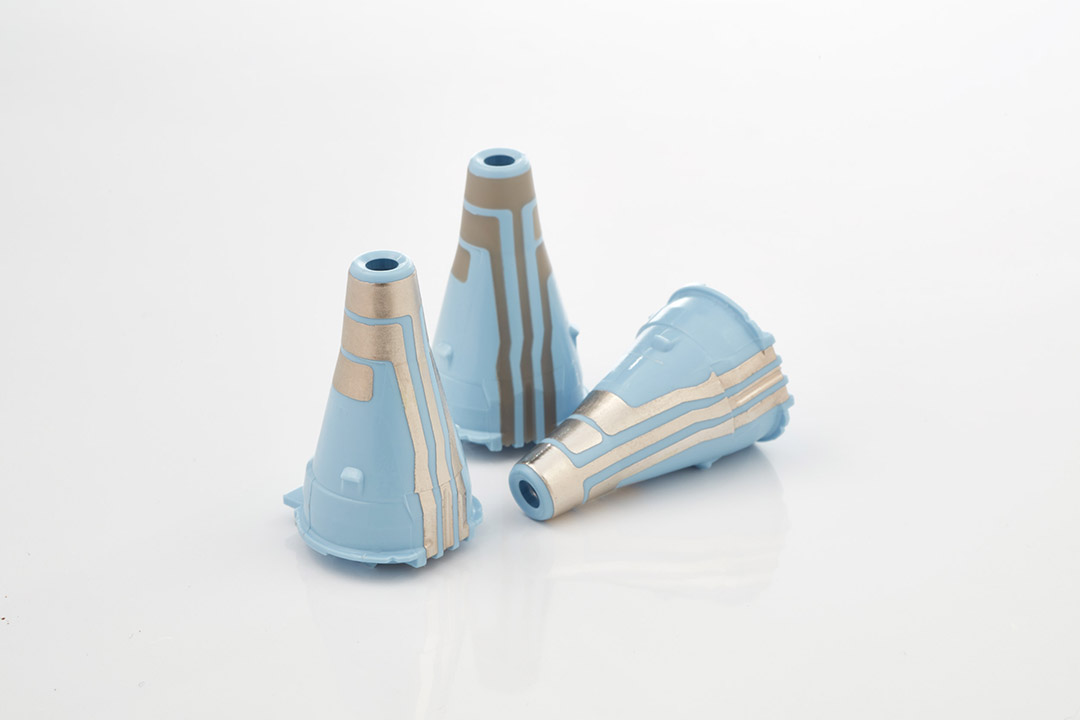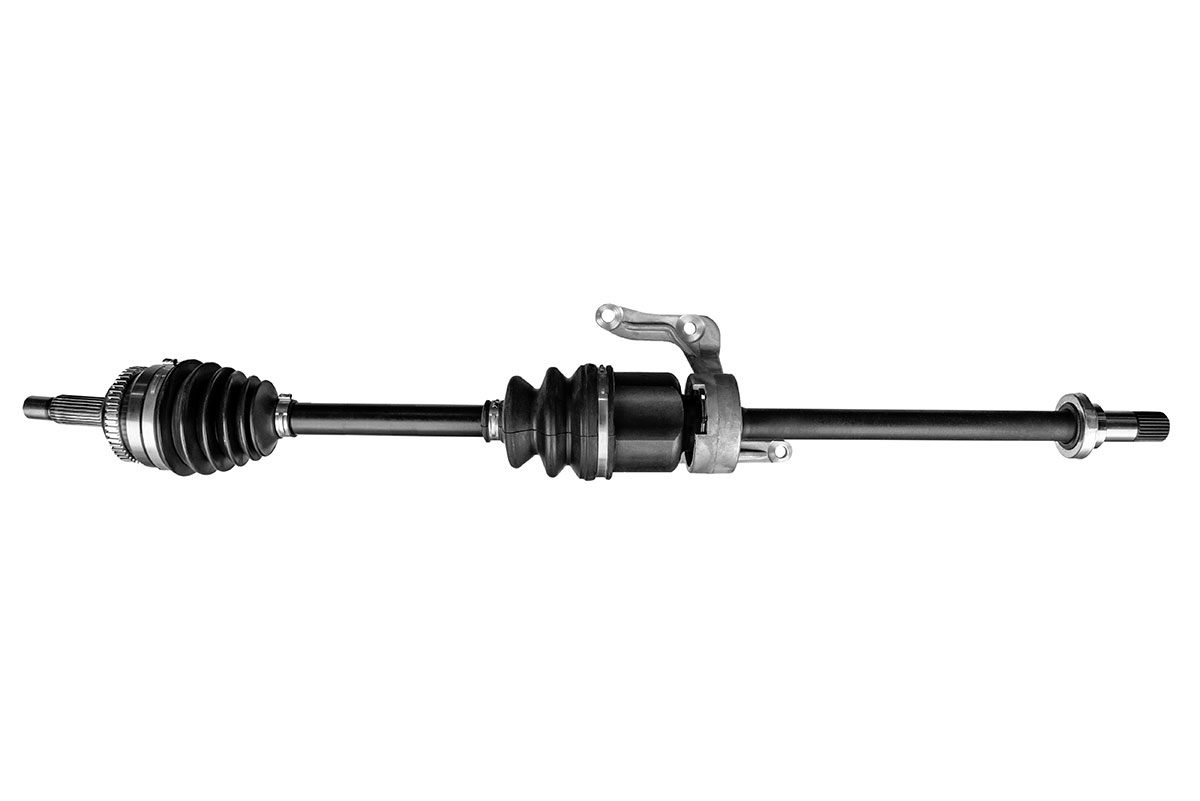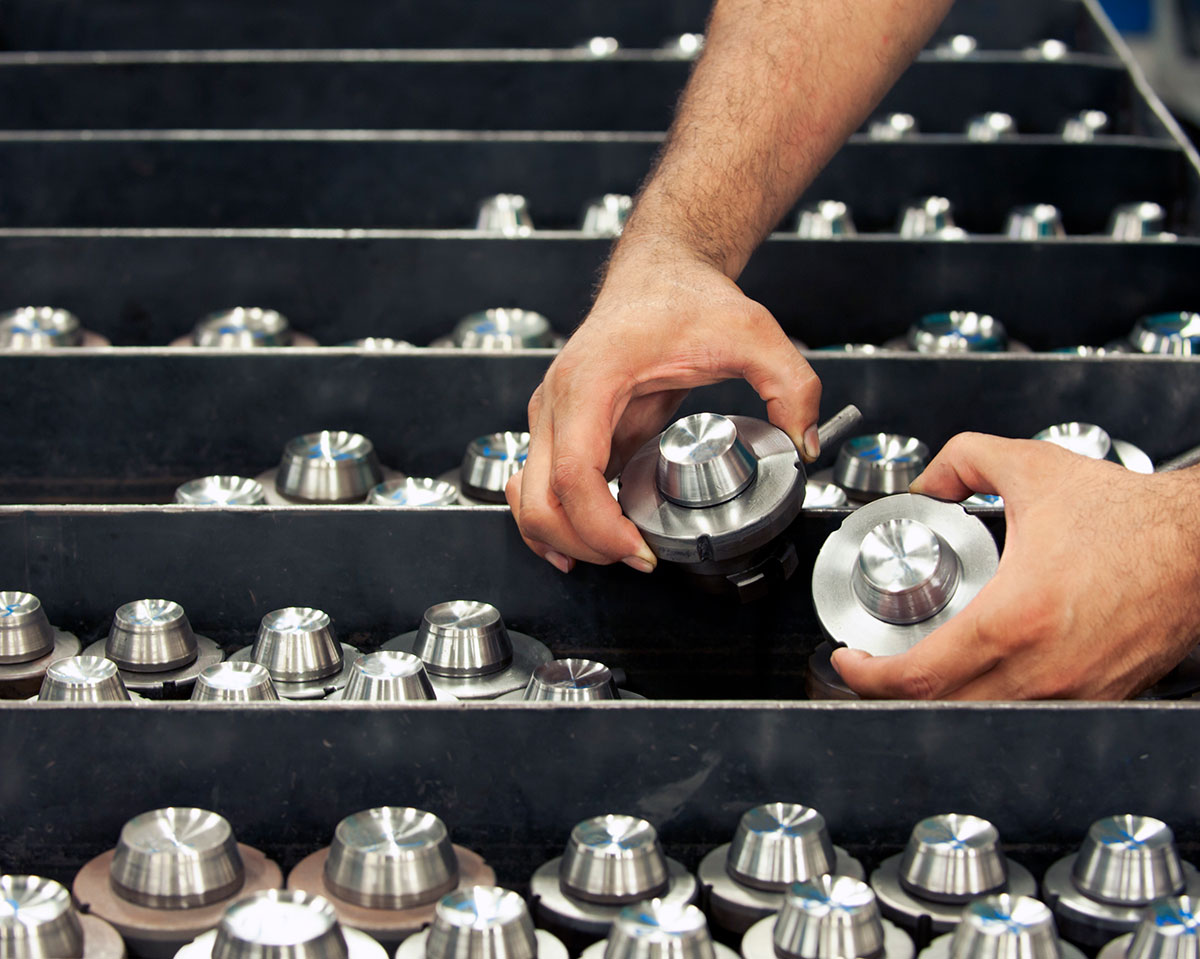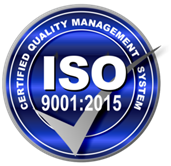Plating PSU
We plate PSU without degrading the polymer surface or altering dimensions.
This is significant in the medical industry where the dimensional integrity of critical components is important. Not only do we preserve these fine dimensions, we plate them as well. Our commitment to quality guarantees we deliver exceptional products that are repeatable and scaleable. See for yourself with our recent project for the Welch Allyn Pro 6000 Ear Speculum.


PSU also has colorability, affording it aesthetic options beyond the traditional transparent nature.
Why Use PSU?
The flexibility of the material affords it a dynamic application. PSU is commonly used in the medical industry for anesthesia hoses and medical instrument cases due to said flexibility, as well as its ability to be sterilized by steam, thus offering it a degree of longevity due to its reusability.
PSU is also great for withstanding high-temperature situations. The heat extremes the material can maintain has made it an apt replacement for less malleable metals commonly found within engines. These applications can range from battery caps, to components within the ignition.
A Closer Look at PSU
PSU—also known as Polysulfone—is a sulfur containing thermoplastic that is structurally categorized within the aromatic group due to the fact that it contains on benzene ring, which is joined by a sulfone group. Generally, PSU is high-cost, but has rigid and malleable properties, as well as offering low moisture absorption.
One of the unique qualities of PSU is its ability to retain its properties between -212 °F (-100 °C) and 302 °F (150 °C). Some of these properties are its high strength and its stiffness. PSU also has great dimensional stability in which it decreases 0.1% when exposed to temperatures above 302 °F or steam. When combined, all these properties—along with its 374 °F melting point—afford it the ability to perform well when exposed to extreme heat.
Due to PSU’s high service temperature, it can also act as a flame retardant material without ever forgoing the materials natural strength. Due to this, the material is also afforded the ability to be sterilized through the use of steam, making it an ideal plastic for medical applications.

PSU is also incredibly resistant to a plethora of acidic and basic properties. It is resistant to chemicals that range between the pH of 2 to 13, which affords it resistance to alkali, electrolytes, and mineral acids. Due to the fact that it’s averse to oxidizing agents, PSU affords the ability to be cleaned by various forms of bleach. It is also resistant to surfactants, which affords it dynamic application in regard to the types of materials it can be exposed to.
PSU also works well as being a component in a composite material. When reinforced with glass fiber, it gains twice the tensile strength as well as tripling its elastic modulus. Beyond the gains in tensile strength, the increase in elastic strength offers the material more flexibility when under pressure, allowing it to withstand higher-pressure applicatio



